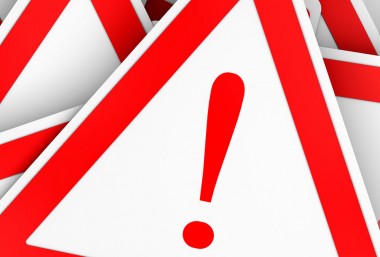Domain name scams are on the rise.
Almost every day we are contacted by clients seeking confirmation about whether the communication they have received about another party registering their domain name is genuine! In almost 100% of cases the communication is a scam. So beware!
To avoid being scammed, business owners must be on the alert and have systems in place to check the authenticity of all the correspondence they receive.
Domain name scams
A domain name is simply an internet address, used to help people get to a website. For example, the AJ Park domain name is ajpark.com.
As domain names must be renewed every couple of years, there are many opportunities for scammers to target owners.
Domain name renewal scams can work in one of two ways. You might be sent an invoice for a domain name that is very similar to your current domain name - the scammer hopes that you don't notice the difference and just pay the invoice.
Alternatively, you could be sent a letter that looks like a renewal notice for your actual domain name, but is from a different company to the one you have previously used to register your domain name.
Domain name holders are currently being targeted by fraudsters seemingly trying to help them get a domain name ahead of another party in either Hong Kong or China, or some other Asian country. The target email looks legitimate but it is easy to be fooled.
It is not uncommon for some businesses to receive several scam letters in a week. They range from bogus invoice-like letters (trying to fool the account payer into paying for an alleged service), to letters that offer a new domain name similar to the business's existing domain name. Other letters may offer website hosting, redirecting or email services.
The creativity of a scammer has no boundaries.
Many businesses choose to register many different levels of their name to ensure that all versions lead to their main website so customers can easily find them. It is this aspect of the domain name system that is exploited in some of the letters sent seeking domain name registrations. The letters sent can look real, so if you are not on the alert, you could find yourself either the victim of a scam or the owner of an unnecessary new domain name.
Scammers may also try to dupe you by charging you for a domain name that is very close to your existing one. They hope you won't notice and pay their invoice. You'd be surprised how often they get away with it!
So how do you avoid being scammed?
You can avoid getting caught out by a scam by:
- managing your domain names through a credible and reliable provider
- becoming familiar with the domain name registration and renewal process
- knowing the domain names you have and where you have licensed them
- being cautious of correspondence from any business, other than your local attorney firm, that seeks money for your domain names,
- setting up good business practices.
What is a good business practice?
A good business practice does not need to be onerous. Consider the following.
Domain names:
- Reading the letter received carefully. Sometimes these letters are poorly written and do not make much sense - this is a huge clue they are a scam!
- Keeping a record of your domain names. Know what domain names you have registered, who your registrar is, and when each domain name falls due for renewal.
- Checking all details on any invoice or letter received.
- Checking the rates, terms and conditions on a renewal notice to see if they compare with those offered by your current provider.
- Checking the website address carefully. Scammers often set up fake websites with similar addresses.
- Assigning one person in the business to be responsible for making any payments for domain names.
- Checking the service was ordered and delivered before paying an invoice.
Other steps to take:
- Checking the New Zealand Commerce Commission website (www.comcom.govt.nz).
- Checking Scamwatch (http://www.consumeraffairs.govt.nz/scamwatch/), an information service run by the Ministry of Consumer Affairs which gives details of current scams.
- Checking the Australian Competition and Consumer Commission's Scamwatch website for current scams ( http://www.scamwatch.gov.au).
- Report scams to the above organisations so they can alert others.
If you are not sure whether the letter you have received is legitimate, check it out with your service provider. But make sure that you check before you pay the invoice or reply to the sender. Once paid, the fraudster will be off. And once you reply, it is difficult to stop the flood of further letters you will receive.
Scams are designed to trick you into giving away your money or important information. Don't let them get you. Be alert to fraudsters.
An edited version of this column appeared in NZ Retail, issue 715.